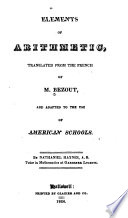 | Etienne Bézout - Mathematics - 1824 - 238 pages
...equivalent to A and ^ ; for, if the numerator or denominator of a fraction is multiplied or divided by the same number, the value of. the fraction is not changed. But, -^ is greater than T*j, the fraction ^ is then gi eater than the /faction |.. For, a fraction... | |
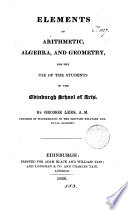 | George Lees - 1826 - 276 pages
...their common denominator. The principle of this rule is, that if the numerator and denominator be both multiplied by the same number, the value of the fraction is not altered. That both terms are multiplied by the same number, by applying the preceding rule, will readily... | |
 | Augustus De Morgan - 1831 - 108 pages
...same result. The most important property of a fraction is, that if both its numerator and denominator are multiplied by the same number, the value of the fraction is not altered ; that is, £ is the same as i|, or each part is the same when we divide 12 inches into 20... | |
 | Mathematics - 1836 - 530 pages
...same result. The most important property of a fraction is, that if both its numerator and denominator are multiplied by the same number, the value of the fraction is not altered ; that is, £ is the same as A|, or each part is the same when we divide 12 inches into 20... | |
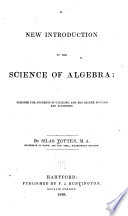 | Silas Totten - Algebra - 1836 - 320 pages
...demonstration of the preceding rule depends upon the following principle. If both terms of a fraction be multiplied by the same number, the value of the fraction is not altered ; for, by multiplying the numerator, the fraction is multiplied (20), and by multiplying the... | |
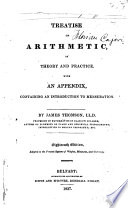 | James Thomson (LL.D.) - Arithmetic - 1837 - 296 pages
...which belong to all fractions : 1. If the terms of any fraction be both multiftlied, or both divided by the same number, the value of the fraction is not changed. 2. A fraction is multiplied by any number either by multiplying its numerator, or dividing Us denominator,... | |
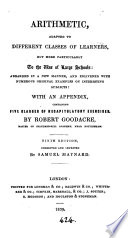 | Robert Goodacre - 1839 - 320 pages
...the general denominator. REASON OF THIS OPERATION.— As both the numerator and denominator of each fraction are multiplied by the same number, the value of the fraction after its reduction must remain the same as hefore ; or, this rule may be considered a repetition of... | |
 | James Wood - Algebra - 1841 - 492 pages
...to - of £3, which is also 15 shillings. 12. If the numerator and denominator of a fraction be both multiplied by the same number, the value of the fraction is not altered. For, if the numerator be multiplied by any number, the fraction is multiplied by that number... | |
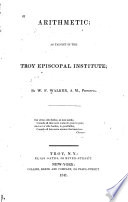 | W. F. Walker - Arithmetic - 1841 - 246 pages
...while the multiplication of the denominator, agreeably to the latter, decreases its value ; and if both are multiplied by the same number, the value of the fraction is increased as much by the multiplication of the numerator as it is diminished by the multiplication... | |
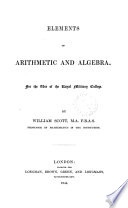 | William Scott - Algebra - 1844 - 568 pages
...It has been proved (Art. 25) that if the terms of any fraction are both multiplied or both divided by the same number, the value of the fraction is not changed ; and this principle has been applied to the reduction of fractions to the lowest terms (Art. 26).... | |
| |